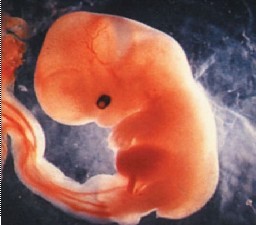《远大前程》英文读后感(范文3篇)
发布日期:2025-03-26
读后感一 Great Expectations, written by Charles Dickens, is a profound and captivating novel that takes readers on an unforgettable journey of self-discovery, social commentary, and the complexities of human nature. This classic masterpiece has left an indelible mark on my mind, offering valuable insights into the themes of ambition, love, and the pursuit of happiness. The story follows the life of Pip, an orphan boy from a humble background who unexpectedly receives a large fortune and the opportunity to become a gentleman. As Pip's circumstances change, so does his character. He becomes consumed by his newfound wealth and status, distancing himself from his true friends and family. Through Pip's experiences, Dickens explores the corrupting influence of money and social class, highlighting how they can distort one's values and sense of self. One of the most striking aspects of Great Expectations is Dickens' masterful portrayal of characters. Each character in the novel is unique and multi-dimensional, with their own motivations, flaws, and desires. Pip, for example, is a complex protagonist whose growth and transformation throughout the story are both compelling and relatable. His journey from an innocent and kind-hearted boy to a proud and arrogant young man, and finally to a humble and self-aware individual, serves as a powerful reminder of the importance of staying true to oneself. Another memorable character is Miss Havisham, the eccentric and reclusive spinster who was jilted at the altar on her wedding day. Trapped in a world of her own making, Miss Havisham raises Estella, an adopted daughter, to break men's hearts as a form of revenge. Through Miss Havisham's character, Dickens delves into the themes of love, loss, and the destructive power of obsession. Her decaying mansion, filled with cobwebs and rotting food, symbolizes the emptiness and decay of her soul. In addition to its rich characters, Great Expectations also offers a scathing critique of Victorian society. Dickens exposes the stark inequalities between the rich and the poor, the rigid class system, and the hypocrisy and corruption that pervaded every aspect of society. Through Pip's experiences, we see how difficult it was for someone from a lower-class background to rise above their circumstances, regardless of their talent or hard work. Despite its dark themes, Great Expectations also offers a glimmer of hope. In the end, Pip learns the true meaning of love, friendship, and happiness. He realizes that wealth and status are not the keys to a fulfilling life, and that true value lies in the relationships we build and the people we care about. This message of redemption and the power of human connection resonates deeply with readers, reminding us of the importance of staying grounded and true to our values. Overall, Great Expectations is a timeless masterpiece that continues to captivate and inspire readers today. Its universal themes, complex characters, and powerful social commentary make it a must-read for anyone interested in literature, history, or the human condition. Through Pip's journey, we are reminded of the importance of self-reflection, the dangers of greed and ambition, and the enduring power of love and friendship. 读后感二 After finishing reading Great Expectations, I am deeply impressed by Charles Dickens' storytelling prowess and his profound understanding of human nature. This novel is not just a simple tale of a boy's rise from rags to riches; it is a complex exploration of themes such as ambition, identity, and the consequences of our actions. The protagonist, Pip, starts off as a kind and innocent young boy living in a humble village. His life takes an unexpected turn when he meets the mysterious Miss Havisham and her beautiful but cold-hearted adopted daughter, Estella. From that moment on, Pip becomes obsessed with becoming a gentleman in order to win Estella's love. This obsession drives him to leave his simple life behind and pursue a life of wealth and privilege in London. As Pip's circumstances change, he undergoes a significant transformation. He becomes arrogant, snobbish, and ungrateful, forgetting his roots and the people who truly care about him. His newfound wealth and status do not bring him the happiness he expected. Instead, he finds himself isolated and unhappy, haunted by his past and the choices he has made. Through Pip's character, Dickens shows us the dangers of allowing our ambitions to consume us. Pip's pursuit of wealth and social status leads him down a path of moral decay and self-destruction. He loses sight of what is truly important in life, such as love, friendship, and loyalty. It is only when he hits rock bottom that he realizes the error of his ways and begins to seek redemption. Another theme that stands out in Great Expectations is the concept of identity. Pip struggles to define himself throughout the novel, constantly torn between his humble beginnings and his desire to be a gentleman. He tries to fit into a world that is not truly his own, sacrificing his true self in the process. This struggle with identity is something that many of us can relate to, as we all try to find our place in the world and figure out who we are. The characters in Great Expectations are some of the most memorable in literature. Miss Havisham, with her decaying wedding dress and haunted mansion, is a symbol of the destructive power of love and revenge. Estella, with her beauty and coldness, represents the allure and danger of social status. And Joe Gargery, Pip's kind and gentle brother-in-law, is a constant source of love and support throughout Pip's journey. Each character is fully developed and complex, adding depth and richness to the story. Dickens' writing style is also a highlight of the novel. His descriptions are vivid and detailed, bringing the characters and settings to life. He uses humor, irony, and satire to expose the flaws and hypocrisies of Victorian society. His dialogue is realistic and engaging, allowing the characters to speak for themselves and reveal their true personalities. In conclusion, Great Expectations is a masterpiece of literature that deserves its place among the greatest novels of all time. It is a thought-provoking and emotionally charged story that explores themes that are still relevant today. Through Pip's journey, we learn valuable lessons about the importance of staying true to ourselves, the dangers of greed and ambition, and the power of love and forgiveness. This is a book that will stay with me for a long time, and I highly recommend it to anyone who enjoys a good story with depth and substance. 读后感三 Great Expectations is a literary gem penned by the renowned Charles Dickens, and it has been an absolute delight to immerse myself in its pages. This classic novel offers a rich tapestry of human experiences, exploring themes that resonate deeply with readers across generations. At the heart of the story is Pip, a young orphan whose life is forever altered by a series of unexpected events. From the moment he encounters the convict in the marshes to his sudden elevation to the status of a gentleman, Pip's journey is filled with twists and turns that keep the reader engaged from start to finish. One of the aspects that I found most fascinating about Great Expectations is Dickens' ability to create such vivid and memorable characters. Each character in the novel is a unique individual, with their own strengths, weaknesses, and motivations. Pip, for example, is a complex and multi-dimensional character whose growth and development throughout the story are both believable and compelling. We witness his transformation from a naive and innocent boy to a worldly and sophisticated young man, and along the way, we see him grapple with issues of identity, morality, and love. Another character that stands out in my mind is Miss Havisham. Her tragic story of being jilted at the altar on her wedding day has left her a broken and bitter woman. Trapped in a world of her own making, she lives in a decaying mansion surrounded by the remnants of her once-happy life. Miss Havisham's character is a powerful reminder of the destructive power of obsession and the importance of letting go of the past. Estella, Miss Havisham's adopted daughter, is another intriguing character. Raised to be cold and heartless, Estella uses her beauty and charm to manipulate those around her. Despite her seemingly icy exterior, however, we catch glimpses of a vulnerable and lonely woman beneath the surface. Estella's character raises interesting questions about the nature of love, loyalty, and the impact of our upbringing on our personalities. In addition to its rich characters, Great Expectations also offers a scathing critique of Victorian society. Dickens exposes the harsh realities of poverty, inequality, and social injustice that were prevalent during this period. Through Pip's experiences, we see how difficult it was for someone from a lower-class background to rise above their circumstances and achieve their dreams. Dickens also satirizes the upper classes, highlighting their hypocrisy, arrogance, and lack of compassion. One of the things that I appreciate most about Dickens' writing is his use of language. His prose is rich, descriptive, and full of imagery, creating a vivid and immersive reading experience. He has a gift for capturing the nuances of human emotion and behavior, and his dialogue is both realistic and engaging. Whether he is describing the bleakness of the marshes or the opulence of London society, Dickens' writing brings the world of Great Expectations to life. Overall, Great Expectations is a timeless classic that continues to captivate and inspire readers today. Its universal themes, complex characters, and beautiful prose make it a must-read for anyone who appreciates great literature. Through Pip's journey, we are reminded of the importance of staying true to ourselves, the power of love and friendship, and the possibility of redemption. This is a book that I will cherish and revisit again and again.








